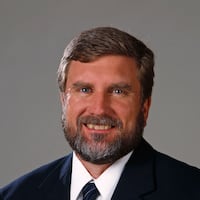The mayor seems to be on that path, as his campaign finance report shows that he received a single $100 campaign contribution in 2012 (“from a woman who lives up the street,” he said), spent nothing, and currently has $198 to work with.
Meanwhile, Wagner, a former judge and county auditor, and Whaley, a current city commissioner, have each spent more than $11,000 already. Wagner’s campaign has $50,121 in the bank, and Whaley has $71,845, according to their filings Thursday with the Montgomery County Board of Elections.
“I respect what (Leitzell’s) trying to do, but at the end of the day, this is the sixth largest city in the state of Ohio, and you need to have the necessary resources in order to reach out to voters,” Whaley said. “As the incumbent, he gets a lot more press and attention than the other candidates do, so of course he’d want everybody to spend less money.”
Wagner said he agrees with Leitzell that there is too much money in politics, but he won’t take the same path.
“If he can do it, more power to him,” Wagner said. “Unfortunately, I just don’t know how I can get a message out of why I deserve to be mayor for $10,000 or less. I just don’t think I can do it.”
Leitzell said Wagner and Whaley are missing the point of his challenge, saying if they had agreed, the campaign would have put a positive spotlight on Dayton.
“Dayton would have been on the national map, media-wise, for doing something so innovative, so creative and so necessary at this moment in time with regard to campaign spending,” Leitzell said. “From my perspective, it was more to do with marketing. It wasn’t to do with winning or losing.”
That said, Leitzell said he believes he can win re-election despite spending much less than his opponents. He points to his 2009 victory over better-funded incumbent Rhine McLin. The difference in 2013 will be the addition of a May primary election to narrow the field to two in November.
“I feel, personally, that if I can’t win on my own merit, I don’t deserve the position,” Leitzell said. “If you need that much money, when I’ve challenged you to $10,000, you lack the confidence that you can win.”
Whaley thinks she can win, saying Leitzell’s 2009 victory was partly because of a brutal recession and the anti-incumbent mood it created.
Whaley received $32,928 in contributions, all but $620 of it since November. Only one of those contributions was for more than $1,000 — a $1,720 donation from the local Women in Leadership PAC. Whaley said that organization mentored her in the late 1990s. Her largest expenditure was $5,740 to the Ohio Democratic Party, which is providing one staffer to her campaign.
“When you have a lot of people giving different amounts of money, and I think that’s what our report shows, I think it shows (a broad base) of support,” Whaley said.
Wagner’s campaign finance forms listed $41,812 in contributions and $20,000 in loans. The loans were $10,000 each from developer Michael Oberer and Zafar Rizvi, president of REX American Resources. His largest contributions were $5,000 each from local naturalist/philanthropist Jean Woodhull, and from the campaign of Andrew Ginther, president of Columbus City Council.
Wagner also received more than two dozen contributions from local attorneys, several of them for $1,000 each.
“I think that’s a carryover from my relationship with attorneys when I was judge,” Wagner said. “I think if you look at most of those attorneys individually, none of them are doing business directly with the city of Dayton.”
Wagner’s largest expenditure was $6,380 to Triumph Communications for campaign consulting.
About the Author
